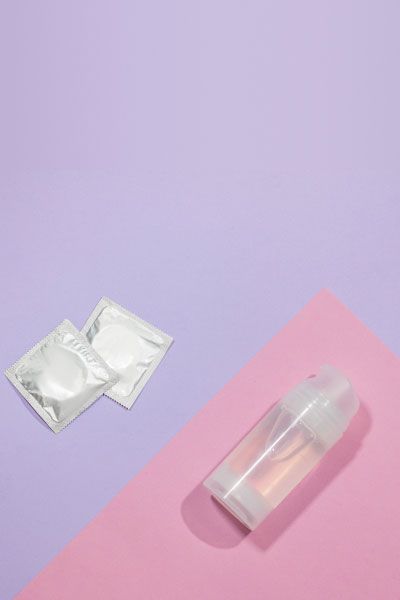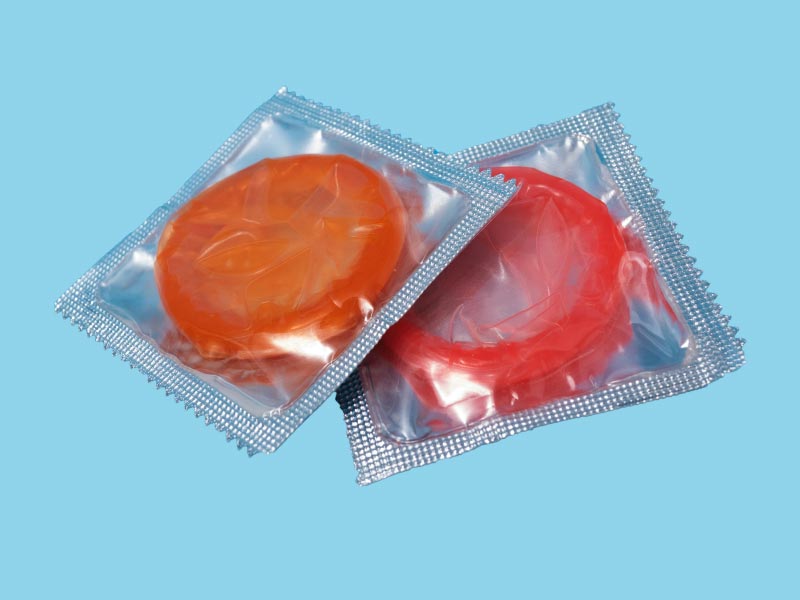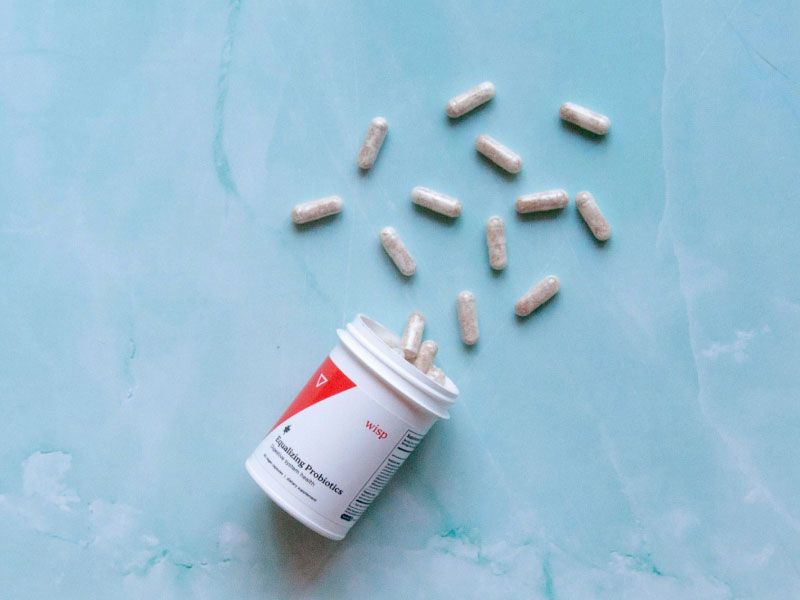
A Guide to Spermicide
By Lizzie De La Cruz
April 2, 2021
Killing sperm right on the spot sounds like an ingenious way to prevent an unwanted pregnancy. Yet what many women may not realize is that this form of contraception can cause unintended harm and lead to long-term complications with your reproductive health. Spermicide is known to cause vaginal infections and vaginal imbalances in women. Luckily, there are many other (more effective) types of birth control that are much safer to use. Let's dig into what exactly spermicide is and how it affects our bodies.
What Is Spermicide?
Spermicide is a type of contraception that kills sperm or stops it from moving. It comes in many different varieties, such as:
- Spermicidal foam: This comes in an aerosol can with an applicator. The consistency of spermicidal foam is like mousse hair products.
- Spermicidal cream or gel: It comes in a tube, and the consistency may vary. This type of spermicide is likely to drip and acts as a lubricant.
- Spermicidal jelly: This variety also comes in a tube and is used with a cervical cap or diaphragm. It also provides lubrication.
- Contraceptive film: This is a thin sheet of wax paper-like film that you insert into your vagina. It melts into a thick gel.
- Contraceptive sponge: The sponge is made of solid foam with a loop attached for easy removal. It covers your cervix as it releases spermicide.
- Inserts, suppositories, or tablets: These are solid forms of concentrated spermicide. Once inserted, they melt into a foam.
All types of spermicide go into your vagina, although the way you insert them will vary. The chemicals in the spermicide act to prevent sperm from entering your uterus.
What Are the Benefits of Spermicide?
Spermicide isn't one of the most effective types of birth control on the market, but some sexually active people like to use it for the following reasons:
- You don't need a prescription
- You can insert it on your own
- It has different side effects than hormonal birth control pills
- Certain varieties act as lubrication during sex
What Are the Downsides of Spermicide?
Spermicide as a contraceptive comes with various drawbacks, such as:
Higher Risk of Pregnancy
Using spermicide alone isn't a highly effective form of birth control. Roughly 28 in 100 women who only use spermicide get pregnant in the first year of regular use. Using a backup form of birth control, like the pill or a condom, can lower this risk.
Vaginal Irritation
A common side effect of spermicide is a burning or itching rash on your vagina. Some women also experience allergic reactions to spermicide, due to nonoxynol-9. Whether you're allergic or not, spermicide can be harsh on such a sensitive area. This is especially true if you are using spermicide multiple times a day. Along with irritating your vagina, spermicide can also irritate your partner's genitals.
Vaginal Imbalances
Your vagina needs a healthy balance of bacteria to keep things in working order. Spermicides can upset this natural balance, which can lead to the overgrowth of bacteria or yeast. When you have a yeast infection, you may experience burning, itchiness, unusual discharge and other symptoms. If you experience these symptoms, spermicide may not be a good contraceptive for you.
Everyone's body will react differently to spermicide, and while it may be compatible with your body one year, something in your diet or lifestyle could change and throw off this balance. If you notice any of the common symptoms of bacterial vaginosis, stop using spermicide immediately and talk to a healthcare provider. By taking care of your natural flora, you can reduce your risk of chronic vaginal imbalances. If you need help with an active vaginal infection, try our online Symptoms Quiz to get immediate treatment.
Higher Risk of Urinary Tract Infection
Along with yeast infections, spermicide also increases your odds of getting a urinary tract infection (UTI). This can lead to discomfort, pain and the constant feeling of having to pee. If spermicide continues to be your birth control of choice, you may develop chronic or frequent UTIs. There are many downsides to recurrent UTIs, but one main one is that frequent antibiotic treatment for UTI can in turn make yeast infections more common!
If your vagina is unhappy using spermicide, don't force it! Otherwise, you risk sending yourself down a vicious circle of vaginal infections that only gets worse and worse.
Risk of Toxic Shock Syndrome
Using cervical caps or diaphragms can increase your chances of toxic shock syndrome (TSS) if you leave them in your body for too long. TSS is a bacterial infection that enters your bloodstream and produces toxins. Leaving a diaphragm in longer than 24 hours or a cervical cap in longer than 48 hours increases your risk. TSS can impact your vital organs and may even be life-threatening.
Increased Risk of STI
Unlike condoms, spermicide does not protect against sexually transmitted diseases (STIs). And since using it can irritate your vagina, that will actually make it easier for STI-causing germs to enter your body. Vaginal irritation and inflammation heighten your risk for HIV and other common STIs.
It Requires Frequent Reapplication
Many women enjoy using the birth control pill or an IUD since they don't require any action before sex. As long as the IUD is functioning properly and you take all of your pills, you are likely to prevent unwanted pregnancy (though these forms of birth control don't protect you against STIs). When using spermicide, on the other hand, you need to use it each time you have sex. Sometimes, you even need to reapply it during intercourse.
How Do I Take Care of My Vaginal pH Balance?
Let's start off by explaining what your vaginal pH balance is—your pH measures how "acidic" or "basic" your vagina is. The scale of your pH can range from 0 to 14. When your pH is lower than seven, it's considered acidic, and when your pH is higher than seven, it's basic. An ideal vaginal pH is generally between 3.8 and 4.5, making it slightly acidic. This range can change throughout your life, especially before menstruation or after menopause. Many things can influence the pH of your vagina, including semen, saliva and, yep, spermicide.
Having a moderately acidic vagina is a good thing since it can protect you from the overgrowth of bacteria or yeast. That's why it's important to avoid things that throw off this balance, like spermicide. Here are some other things that can cause an unbalanced vaginal pH:
- Douching
- Antibiotics
- Periods
- Unprotected sex
To maintain a healthy balance, you should avoid spermicide, douching and unprotected sex. Since taking antibiotics and having a period are necessary parts of life, you can do a few things to help preserve your pH balance, such as:
- Taking probiotics
- Using a condom
- Eating yogurt
- Regularly seeing your OB-GYN
Although spermicide can help reduce your risk of pregnancy, it can also lead to chronic vaginal infections and imbalance. By using other forms of birth control, you can protect yourself from STIs and prevent an unwanted pregnancy. If you do experience an STI or other type of infection, you can always get it treated online with wisp — we've got your back. When it comes to sexual health, you need to remember to always listen to what your body is telling you — especially your vagina!
Get Medication Online

Wisp Equalizing Probiotics
Starting at $18/ month
The Wisp Equalizing Probiotics is a daily supplement that contains 25 billion CFU’s of 9 powerhouse probiotic strains (more “good” bacteria!).

UTI Antibiotics Online Prescription
Starting at $65
Prescription antibiotics used to prevent & treat Urinary Tract Infections.

D-Mannose Capsules
Starting at $27
Skip the cranberry juice with D-Mannose capsules to support urinary tract health.

Boric Acid Suppositories
Starting at $27
An over-the-counter vaginal suppository custom-made to help prevent & relieve infections.


